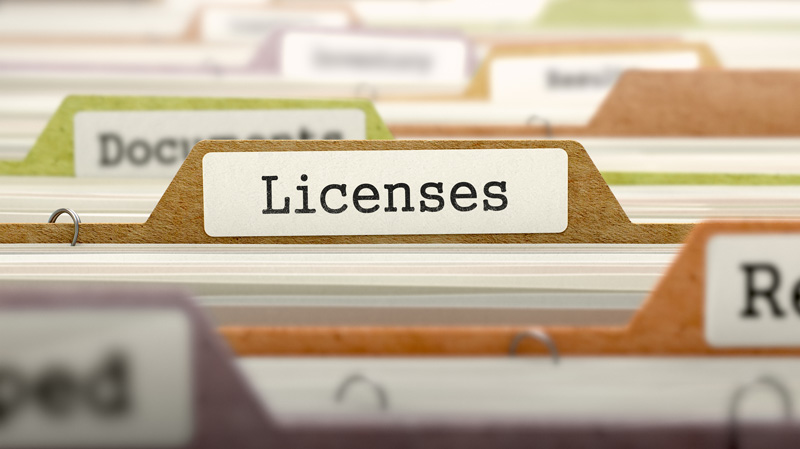iGaming Under the Microscope: What 2026 Rules Mean for Your Ads, Audience, and ROI
The iGaming industry today mainly focuses on staying on the right side of the law. More countries are tightening the regulations on gambling ads, which are the primary source of traffic acquisition. One misstep in your campaign, and you are blocked by Google, fined by regulators, or blacklisted by ad platforms.
What was once a marketing free-for-all has turned into a carefully controlled environment, where approvals, age filters, and KYC rules shape how and where you can advertise. The good news is that you can still succeed if you know the rules. In fact, understanding the evolving regulations has become a competitive edge.
Why Compliance in iGaming Is More Than Just Red Tape

In 2026, the projected global revenues are expected to soar past $136 billion, so everyone wants to enrol and get a share. Things become complicated when entrepreneurs start playing by their own rules, rather than adhering to the established ones.
Legal changes to be ready for:
Tightening Advertising Restrictions
Countries like the Netherlands and Bulgaria decided to put the brakes on gambling promotion and introduced near-total bans. Platforms are not far behind. Google, Meta, and other major networks now demand pre-approvals for every landing page, banner, or creative. And that is also if they allow iGaming ads for you at all. The goal is to weed out misleading content and shady operators. The result is more red tape, slower launches, and less reach if you are not prepared.
Levelled-Up KYC Regulations
It is no longer enough to ask for a birthdate and a scanned ID. Operators are expected to run thorough investigations on player affordability, risk factors, and signs of gambling addiction. These checks are not optional. They are enforced by regulators and required by payment providers. If you miss the mark, you could lose your licence, face penalties, or put vulnerable players at risk.
Legal compliance is about trust, a future-proofed platform, and protecting the marketing budget. The better you understand the rules, the more room you have to get creative within them.
LatAm in 2026
Since December 2023, Latin America has started to align more closely with European regulatory models. The region introduced structured rules that guide how operators should advertise their services.
Latin American markets allow more freedom than their European counterparts. You can be creative with your messaging and formats, as long as you play by the rules.
What the landscape looks like now by country:
Brazil
iGaming ads are allowed, though clear limitations are imposed. Only adults can be targeted, and any attempt to overpromise (especially around winnings) is a red flag. Every creative element, from visuals to landing pages, must be reviewed before going live. If you plan to run a campaign on Google or Meta, you will need their official approval first.
Argentina
The country permits gambling ads under certain conditions. Operators must ensure all content is aimed at users aged 18 and over and avoid any claims that could mislead. As in Brazil, ads must go through moderation before publication, and campaigns on Google or Meta require prior approval.
Chile
Similar to Argentina, this country allows advertising with restrictions. Messaging must be age-appropriate, honest, and pre-approved. The major ad platforms apply the same strict moderation policies, with no room for vague disclaimers or unverified claims.
Colombia
As one of the early adopters of online gambling regulation in the region, the country allows ads with warnings. Operators must verify that audiences are of legal age and refrain from using aggressive or misleading tactics. Every campaign needs approval from Google and Meta, which adds a layer of delay but ensures legal safety.
Panama
Ads are permitted, though the same rules apply as in other regulated LatAm markets. Here, only adults can be targeted, facts should be disclosed, and exaggerated messaging must be avoided. Google and Meta approvals are also mandatory, so do not expect instant launches without planning.
Mexico
Here, advertising is legal but under a slightly different framework. Each ad must display a warning that the games are for adults only. If you advertise on Google, you must prove that your landing page is linked to a licensed operator registered with the Secretaría de Gobernación or Pronósticos para la Asistencia Pública. If you have no valid licence, there is no campaign.
Peru
This is the only LatAm country on this list where iGaming ads are currently forbidden. Operators should steer clear, as there is no legal path to run advertisements here. Targeting content to Peruvian users can result in penalties or bans.
Overall, LatAm in 2026 offers an opportunity with structure. You can still work in a fast-growing market, but each country comes with its own gatekeepers. It is critical to be aware of the local nuances, get your creatives pre-approved, and make sure your licence is visible and valid.
The USA in 2026

Unlike many regions that regulate gambling at the national level, the United States delegates the legalisation to their federal lands. There is no universal federal law governing iGaming, as each region sets its own rules, approvals, and advertising guidelines. That means what is legal in Michigan may be completely off-limits in Texas.
Where you can advertise and what you must follow:
- Connecticut. Fully legal. Operators can promote their platforms to users aged 21 and over, as long as the messaging is accurate and includes responsible gambling disclaimers. False promises and overhyped odds are forbidden.
- Delaware. This is another fully legalised market. Campaigns here must adhere to the same national advertising expectations. This means no aggressive calls to action, obligatory support resources, and no celebrity endorsements unless officially approved.
- Michigan. A key iGaming hub. Ads must not target anyone under 21, and all creatives must include a visible message for responsible play, such as hotline numbers or disclaimers. Accuracy in messaging is crucial, and no exaggerated claims should be added.
- New Jersey. This is one of the most mature online gambling markets in the US. At the same time, operators must comply with state-specific advertising laws and platform policies. Every word, image, and bonus offer should reflect transparency and player safety.
- Pennsylvania. Fully open to iGaming. Campaigns must meet high standards, including targeting individuals aged 21 and above, responsible messaging, and a zero-tolerance policy for misleading content. Regulatory bodies conduct regular audits, so accurate documentation is crucial.
- Rhode Island. Legal with no major advertising issues, as long as platforms comply with the usual age and content guidelines. Still, best practice includes platform moderation and clear opt-out tools for users.
- West Virginia. Gambling in the region is legal, but with some game restrictions (classics like dice or roulette may be excluded). Ads must be truthful, avoid guarantees, and comply with the 21+ age rule. It is also essential to flag any game format limitations in promotional material.
- Florida. iGaming is not fully legalised here. Some formats are allowed, but it depends on interpretation. Promoting general games of chance is risky, so campaigns should focus on state-compliant segments only.
- California. The region remains in a grey zone. Certain types of iGaming are restricted, and legislation is vague. Operators should proceed with extreme caution or skip this state unless under strict legal supervision.
Beyond legality, there are federal-level expectations for advertising integrity.
Baseline requirements every campaign must meet:
- only users aged 21+ to be targeted;
- active athletes, coaches, or sports execs not allowed in gambling ads;
- ads to be factual with no phrases like “guaranteed win”;
- campaigns to include a visible message related to problem gambling;
- ads to remain neutral and informative even in legal states.
A great example is New York’s legislation (S1550/A1118). The updated decree now requires that every iGaming advertisement include a warning about the risks of addiction.
Marketing in the USA requires a clear understanding of each state as if it were a separate country. There is profit in compliance, but only if you treat every region with the specificity it demands.
How Non-Mainstream Ad Networks Impact the Sphere
When you are in the iGaming business, promoting casino content on Google and Meta feels like trying to jump through hoops of various sizes. Endless pre-approvals, creative restrictions, and shadow bans can impact and even kill your brilliant campaign idea before it even launches. That is why more operators abandon the ad giants in favour of non-mainstream networks. These platforms collaborate with publishers that welcome gambling content and give you access to real traffic without being trapped in compliance purgatory.
Reasons to cooperate with non-mainstream:
More Creative Freedom
These networks actually let you speak your brand’s language. You can use bolder visuals, adapt your messaging to specific segments, and test formats that would get instantly flagged elsewhere. Of course, you still need to avoid misleading or offensive content. As for the rest, you have much more room to breathe.
Fewer Delays, Faster Campaigns
While Meta might take days (or even weeks) to approve your ad, non-mainstream networks typically review most requests manually within a few hours. No AI filters that can misread your headlines and no silent rejections. Just fast, human feedback and a clear go-ahead when you meet the rules.
No Need for Extra Licences
On major platforms, you often have to prove that your brand is certified and approved by a state authority, even if your jurisdiction has already cleared you. Here, you usually do not. These networks focus on creative and site compliance without external red tape.
Actual Support
Instead of dozens of unanswered service tickets, you get real help. Strategy suggestions, ad format advice, and feedback on your creative assets will be provided by knowledgeable and responsive experts. Many platforms also offer managed campaigns, allowing you to offload media buying to professionals who are familiar with the iGaming landscape.
Solid Traffic from Sites
These networks plug into thousands of portals where gambling audiences already hang out. These are gaming-related news sites, entertainment hubs, blogs, etc. They do not deliver cheap impressions but rather targeted exposure with real CTRs and conversions.
Of course, non-mainstream platforms are not without drawbacks. However, if your campaign continues to struggle on top-tier ad networks, this route is more than an alternative; it is the most efficient way out.
Ad Network Selection

Not all platforms are built for iGaming. Even fewer truly understand the regulatory tightrope that has to be adhered to. To avoid wasting time and budget on platforms that cannot deliver, you need a sharp eye for what makes a network trustworthy and effective.
What you should prioritise:
- Honest feedback from real users. Check forums, communities, or review platforms where actual operators share their experience. Consistent feedback is far more valuable than generic testimonials.
- Transparent policies. A reliable platform makes its terms and conditions, refund policy, and payment details easily accessible. If everything is clearly outlined upfront, it is a strong indicator of legitimacy.
- Responsive support team. Test communication before you commit. Quick, informative responses from real people (not bots) show that you can count on help when needed.
- Educational materials. Blog posts, campaign guides, or platform walkthroughs demonstrate a commitment to advertiser success. If they share knowledge freely, they are likely serious about long-term partnerships.
- Access to effective ad formats. The network should offer a variety of types that fit your product. This includes native ads, push notifications, interstitials, or even video. You need flexibility to find what converts best.
- Tracking and creative support. Look for built-in tools that help you monitor performance and optimise on the fly. Some networks even offer ready-made creatives or assist with campaign design, which is a significant time-saver.
What to avoid:
- Mandatory payments just to register. If a network requires payment before you can access the dashboard or explore its features, that is a major red flag.
- Vague or hidden refund policies. If it is unclear what happens when a campaign underperforms or delivers low-quality traffic, you are likely on your own if things go wrong.
- Unclear or limited ad inventory. A platform that only supports one or two outdated ad types is unlikely to help your campaign scale or convert effectively.
- Slow, robotic, or non-existent support. If it takes days to get a reply or you receive vague, scripted, or evasive answers, expect more of the same when your campaign runs into issues.
- Lack of technical tools. If you cannot track conversions properly or set up custom reporting, optimisation becomes guesswork, which is ineffective in this competitive space.
When connecting to the right ad network, you need a partner that understands the iGaming ecosystem, supports your goals, and does not vanish when problems arise.
What Comes Next for iGaming Ad Regulations
The gambling world is constantly evolving. Operators and affiliates must stay one step ahead of regulators because the next wave of changes can reshape how, where, and what you are allowed to advertise.
Innovations that are already on the horizon:
- Expansion into new verticals. eSports betting is growing rapidly, especially across the US, Asia, and LatAm. As the niche matures, you should expect adapted regulations for ad messaging, age filters, and sponsorship rules specific to competitive gaming.
- Stricter oversight in emerging markets. Tier-2 and Tier-3 countries are no longer blind spots. Regions in Latin America, Asia, and Africa follow European models and adapt them to local needs. Cultural values, religious beliefs, and political climates will all influence how advertising is handled. Platforms will likely become more cautious and encourage advertisers to explore alternative channels.
- A stronger focus on responsible advertising. Networks constantly invest in tools to detect click fraud, bot traffic, and misleading creatives. For advertisers, this means better protection and less tolerance for shortcuts. If your ads do not meet quality standards or ethical messaging guidelines, they will not get far.
- Regulation of AI-generated content. Artificial intelligence can write ads, design creatives, and even imitate celebrity voices. With deepfakes and synthetic influencers all around, you should expect tighter controls on AI content. Governments and ad platforms are already developing frameworks to ban deceptive automation, particularly when it compromises player safety or brand integrity.
- Closer scrutiny of user-generated content. Influencers and streamers have been key marketing allies for iGaming brands, but that channel is now under review. Twitch and TikTok have prompted regulators to pay close attention to unpaid promotions, subtle advertising, and influencer disclosures. Such content may soon need to meet the same compliance standards as formal ads.
The more dynamic the iGaming business becomes, the more sophisticated the rules get. Staying relevant means anticipating them and building campaigns with adaptability in mind.
The Main Things About iGaming Ad Regulations in 2026
If you want to succeed in the digital gambling business, adherence to established laws is your ticket to visibility, credibility, and long-term profit. Things like ad approvals or age targeting used to be a part of non-obligatory compliance. Now, even in grey areas, it has turned into a clearly defined checklist. Understanding these rules gives you a genuine edge over competitors who try to skip them.
Key takeaways every operator and affiliate need to know:
- Advertising restrictions, KYC rules, and content limitations are now major forces that shape marketing potential.
- Countries like Brazil, Mexico, and Argentina allow iGaming promotion, but only with age restrictions, moderation, and platform approvals.
- The US demands surgical precision as laws vary by state, so a successful campaign in New Jersey could get you banned in California.
- Non-mainstream ad networks can be a powerful tool, offering faster approvals, fewer creative restrictions, and a better match for your niche.
- Not every network is worth your time, so you should look for transparency, solid support, smart tracking, and creative flexibility.
- The next wave of regulation is already coming, and eSports betting rules, AI content bans, and influencer marketing crackdowns will be the key priorities.
Check the information used to contact us carefully. It is necessary for your safety.
Fraudsters can use contacts that look like ours to scam customers. Therefore, we ask you to enter only the addresses that are indicated on our official website.
Be careful! Our team is not responsible for the activities of persons using similar contact details.



